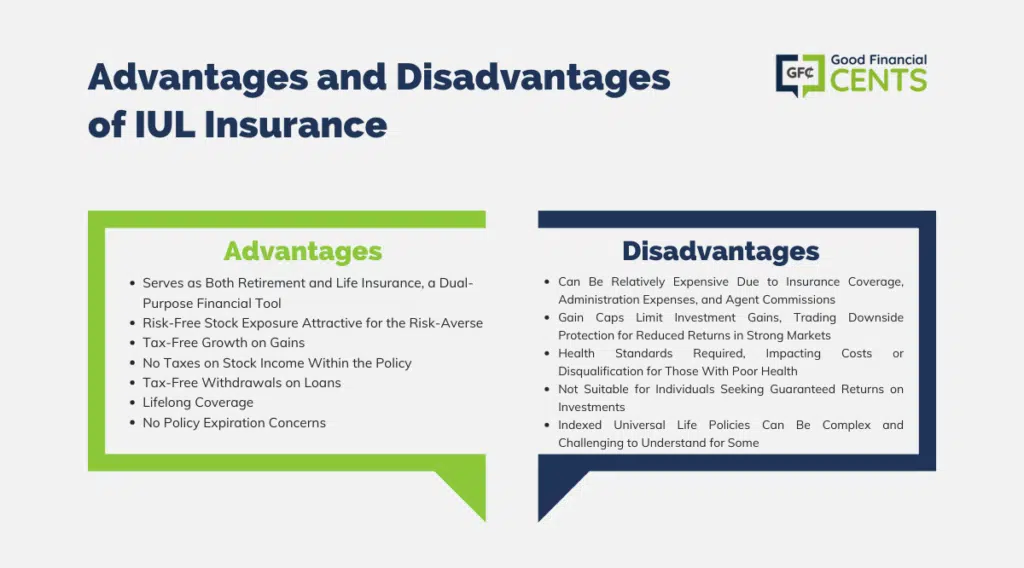All Categories
Featured
Table of Contents
Do they contrast the IUL to something like the Vanguard Overall Supply Market Fund Admiral Shares with no tons, an expense ratio (EMERGENCY ROOM) of 5 basis points, a turnover ratio of 4.3%, and an extraordinary tax-efficient document of circulations? No, they compare it to some awful actively handled fund with an 8% load, a 2% EMERGENCY ROOM, an 80% turnover ratio, and a dreadful record of short-term funding gain distributions.
Common funds typically make annual taxed distributions to fund owners, even when the value of their fund has dropped in worth. Shared funds not only call for earnings reporting (and the resulting yearly taxes) when the shared fund is going up in worth, but can additionally impose revenue tax obligations in a year when the fund has gone down in worth.
That's not how shared funds function. You can tax-manage the fund, harvesting losses and gains in order to lessen taxed distributions to the capitalists, however that isn't in some way mosting likely to alter the reported return of the fund. Only Bernie Madoff kinds can do that. IULs prevent myriad tax catches. The possession of mutual funds may call for the shared fund owner to pay approximated tax obligations.

IULs are simple to position so that, at the owner's death, the beneficiary is not subject to either earnings or estate taxes. The same tax reduction strategies do not work almost as well with common funds. There are many, frequently costly, tax obligation catches linked with the moment trading of common fund shares, traps that do not put on indexed life insurance policy.
Possibilities aren't very high that you're mosting likely to go through the AMT because of your mutual fund distributions if you aren't without them. The rest of this one is half-truths at ideal. For example, while it is true that there is no revenue tax obligation due to your beneficiaries when they inherit the profits of your IUL policy, it is additionally real that there is no earnings tax because of your successors when they inherit a common fund in a taxed account from you.
Iul Insurance Pros And Cons
There are better ways to stay clear of estate tax problems than getting financial investments with reduced returns. Shared funds might create revenue taxes of Social Safety benefits.

The development within the IUL is tax-deferred and might be taken as free of tax income by means of fundings. The plan proprietor (vs. the mutual fund manager) is in control of his or her reportable revenue, hence allowing them to lower and even remove the tax of their Social Security advantages. This set is terrific.
Here's an additional very little concern. It's true if you buy a common fund for say $10 per share right before the circulation date, and it disperses a $0.50 circulation, you are after that mosting likely to owe taxes (most likely 7-10 cents per share) although that you haven't yet had any type of gains.
In the end, it's truly regarding the after-tax return, not exactly how much you pay in taxes. You're also most likely going to have more cash after paying those taxes. The record-keeping requirements for owning common funds are significantly extra intricate.
With an IUL, one's records are maintained by the insurer, duplicates of yearly statements are sent by mail to the owner, and circulations (if any) are amounted to and reported at year end. This one is also type of silly. Naturally you ought to keep your tax obligation documents in situation of an audit.
Cheap Universal Life Insurance Rates
All you need to do is shove the paper into your tax obligation folder when it appears in the mail. Barely a reason to get life insurance policy. It resembles this guy has actually never ever bought a taxed account or something. Shared funds are typically part of a decedent's probated estate.
Furthermore, they are subject to the delays and expenses of probate. The proceeds of the IUL plan, on the various other hand, is always a non-probate distribution that passes outside of probate straight to one's named recipients, and is therefore not subject to one's posthumous creditors, undesirable public disclosure, or similar delays and costs.
We covered this one under # 7, but just to summarize, if you have a taxable mutual fund account, you have to put it in a revocable trust (or also easier, utilize the Transfer on Fatality classification) in order to stay clear of probate. Medicaid incompetency and life time earnings. An IUL can give their proprietors with a stream of income for their whole lifetime, no matter how much time they live.

This is valuable when organizing one's events, and transforming possessions to earnings prior to a nursing home arrest. Shared funds can not be transformed in a similar way, and are nearly always considered countable Medicaid properties. This is another dumb one advocating that bad people (you know, the ones that need Medicaid, a federal government program for the bad, to pay for their assisted living home) ought to utilize IUL rather than common funds.
Iul Life Insurance Pros And Cons
And life insurance policy looks terrible when contrasted relatively against a retirement account. Second, individuals that have money to purchase IUL above and beyond their pension are mosting likely to need to be dreadful at handling money in order to ever before get approved for Medicaid to pay for their assisted living facility expenses.
Chronic and incurable ailment rider. All policies will certainly permit an owner's very easy accessibility to cash money from their plan, typically forgoing any surrender fines when such people suffer a severe disease, require at-home treatment, or come to be confined to an assisted living facility. Mutual funds do not offer a comparable waiver when contingent deferred sales costs still put on a common fund account whose proprietor needs to market some shares to fund the costs of such a stay.
Ffiul Insurance
You obtain to pay more for that benefit (biker) with an insurance coverage plan. Indexed universal life insurance coverage offers fatality advantages to the recipients of the IUL owners, and neither the proprietor nor the recipient can ever before shed money due to a down market.
I certainly don't need one after I reach financial freedom. Do I desire one? On standard, a buyer of life insurance policy pays for the real price of the life insurance advantage, plus the expenses of the policy, plus the earnings of the insurance policy business.
Index Universal Life Insurance Reddit
I'm not totally certain why Mr. Morais threw in the entire "you can not shed cash" once again here as it was covered quite well in # 1. He simply wished to repeat the most effective selling point for these points I suppose. Again, you don't lose small dollars, however you can shed actual dollars, along with face serious possibility expense due to low returns.
:max_bytes(150000):strip_icc()/Pros-and-cons-indexed-universal-life-insurance_final-1b83c0fd52154eb69edd47f99ab8927a.png)
An indexed universal life insurance plan owner might trade their policy for a totally different plan without triggering revenue taxes. A shared fund proprietor can stagnate funds from one mutual fund company to one more without offering his shares at the previous (hence triggering a taxed event), and repurchasing new shares at the latter, typically based on sales charges at both.
While it is true that you can exchange one insurance coverage for one more, the reason that people do this is that the very first one is such a dreadful policy that also after buying a brand-new one and experiencing the very early, unfavorable return years, you'll still appear ahead. If they were marketed the right policy the first time, they should not have any type of wish to ever before exchange it and undergo the early, adverse return years once again.
Latest Posts
Guaranteed Ul Insurance
Equity Indexed Life Insurance
Index Universal Life Insurance Vs Whole Life